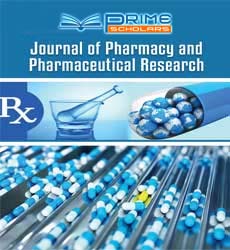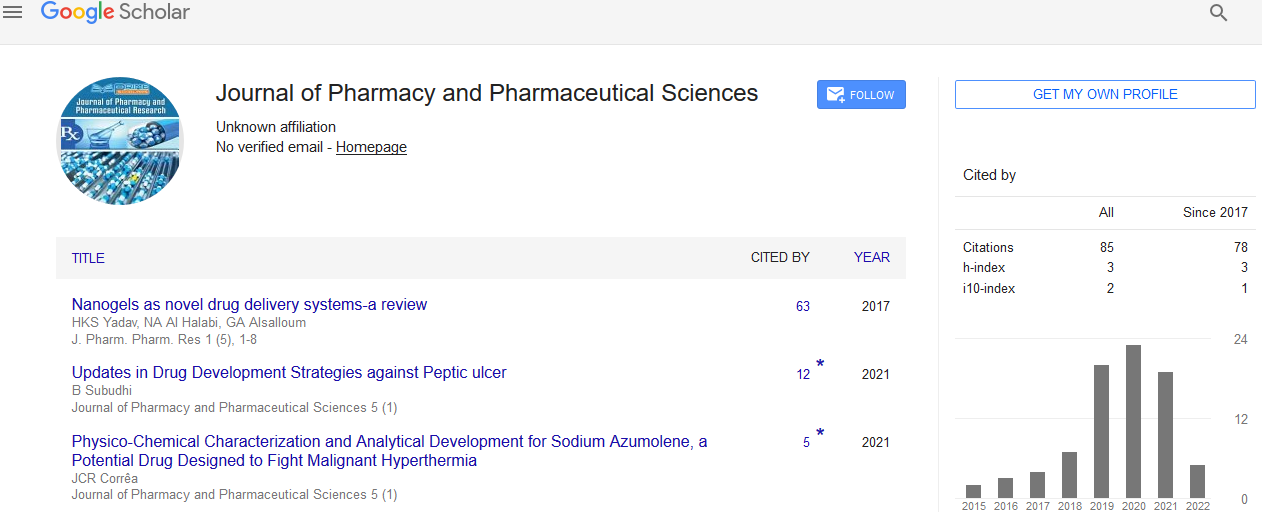Commentary - (2022) Volume 6, Issue 6
Understanding the Importance of Clinical Pharmacology in Drug Development
Lohith Khan*
Department of Pharmacy, University of Rajshahi, Bangladesh
*Correspondence:
Lohith Khan,
Department of Pharmacy, University of Rajshahi,
Bangladesh,
Email:
Received: 30-Nov-2022, Manuscript No. IPIPR-23-15435;
Editor assigned: 02-Dec-2022, Pre QC No. IPIPR-23-15435 (PQ);
Reviewed: 16-Dec-2022, QC No. IPIPR-23-15435;
Revised: 21-Dec-2022, Manuscript No. IPIPR-23-15435 (R);
Published:
28-Dec-2022, DOI: 10.21767/IPIPR.22.6.30
INTRODUCTION
Clinical pharmacology is a translational scientific field that seeks
to understand the effects and behaviour of drugs in humans by
combining knowledge of human pharmacology. Clinical pharmacology
research is fundamental to understanding how drugs are
processed in our bodies and how they affect human physiology.
Clinical pharmacology also helps us understand the relationship
between drug doses and their effects, variability in response to
drugs and treatments, reasons for side effects in some patients,
and ways to minimize side effects. Understanding these aspects of
the action (pharmacodynamics) and disposition (pharmacokinetics)
helps you achieve safe, effective and optimal treatment outcomes
for your patients. Clinical pharmacology is essential for developing
safe and effective medicines/therapeutics and obtaining
regulatory approval. One of the most common mistakes in drug
development is underutilizing clinical pharmacology. Appropriate
use of clinical pharmacology data can serve as a roadmap for an
entire clinical development program, saving valuable time and resources.
Description
Clinical pharmacology studies should examine the absorption, distribution,
metabolism, and excretion (ADME) properties of a drug,
its pharmacodynamics, including desired and undesired effects,
and intrinsic factors (age, sex, weight, racial/ethnic affiliation,
genetics, etc.) and extrinsic factors (food exposure, drug interactions).
Drug development involves sequential, planned trials, including
the initial preclinical stage, followed by human clinical trials.
Clinical pharmacologists help determine which clinical trials to
conduct throughout the drug development process. Depending on
the drug, additional clinical pharmacology studies may be required, or some studies may be avoided using existing data and modeling
tools. In recent years, Model Informed Drug Development (MIDD)
has become an essential tool for optimizing the entire drug development
process in clinical pharmacology. The use of MIDD is beneficial
as it helps drive optimal decision-making for drug developers
by leveraging all available data for drug candidates from in vitro,
preclinical, and clinical studies. Various types of modeling tools,
such as exposure-based models, biological models, and statistical
models, ultimately help predict the probability of success of new
drug candidates. MIDD helps streamline and accelerate the drug
development process by facilitating more informed decision-making
and reducing or eliminating the need for additional research.
Drug developers use MIDD strategies to optimize and reduce the
number of patients enrolled in studies, helping to select appropriate
doses, durations and patient populations, thereby increasing
the likelihood of study success. By applying the knowledge gained
through MIDD-based approaches, we can better understand the
relationship between drug concentrations in the body and their
pharmacological responses.
Conclusion
The MIDD approach can also provide insight into specific unstudied
subpopulations or scenarios that can help bridge efficacy and
safety in such cases. An important application of MIDD is in the
development of pediatric medicines, particularly in determining
adult doses, exposures, and efficacy in pediatric populations,
based on a comprehensive understanding of disease pathology,
drug pharmacology, and response to treatment is to inform sex
extrapolation. The role of clinical pharmacology is paramount in
rational and efficient drug development. A thorough understanding
of clinical pharmacology principles, guidelines, and tools is critical
to successful regulatory approval of a drug.
Acknowledgement
The author is grateful to the journal editor and the anonymous
reviewers for their helpful comments and suggestions.
Conflict of Interest
The author declared no potential conflicts of interest for the research,
authorship, and/or publication of this article.
Citation: Khan L (2022) Understanding the Importance of Clinical Pharmacology in Drug Development. J Pharm Pharm Res. 6:30.
Copyright: © 2022 Khan L. This is an open-access article distributed under the terms of the Creative Commons Attribution License,
which permits unrestricted use, distribution, and reproduction in any medium, provided the original author and source
are credited.

